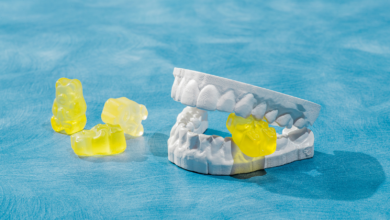5 Things to Know About Muscle Pain
Muscle pain, often referred to as myalgia, is something almost everyone has experienced at some point in their lives. This discomfort can arise from various sources: an intense workout, a sudden injury, or even an underlying medical condition. While it’s a common ailment, understanding its root causes and how to manage it can sometimes be a challenge. This article will explore the different aspects of muscle pain, from its origins to effective treatments and preventive measures. With the right knowledge, dealing with and preventing muscle pain becomes a more manageable task. Let’s dive deeper to uncover the essential information everyone should know about muscle pain.
- Common Causes of Muscle Pain
Muscle pain can stem from various activities and conditions. Often, it’s a result of engaging in new or intense physical workouts, leading to temporary discomfort that typically fades with rest. Injuries like sprains or strains are also culprits. When a muscle gets overstretched or has a small tear, it can lead to pain. Daily stress and tension can manifest in our bodies too. Holding onto stress can make muscles, especially those in the neck and back, feel tight and sore. Beyond these, some people experience muscle pain due to conditions like the flu or other infections. Understanding the root cause of muscle pain is essential as it helps in determining the most suitable approach to relief. Exploring natural and holistic remedies, such as those offered in functional medicine, can be beneficial for many dealing with persistent muscle discomfort.
- Holistic Approaches to Muscle Pain Relief
When it comes to addressing muscle pain, many are turning to holistic and natural treatments. Chiropractic functional medicine stands out as a promising approach. This method combines the benefits of chiropractic care, which focuses on the spine and its alignment, with the principles of functional medicine. Functional medicine looks at the body as a whole and tries to find the root cause of health issues. By combining these two, chiropractic functional medicine offers a comprehensive solution for muscle pain. Instead of just treating the symptoms, it aims to understand the deeper reasons for the discomfort. This approach promotes overall well-being and ensures that the body functions at its best. For those seeking a more natural and holistic way to address muscle pain, this method offers a promising avenue to explore.
- Symptoms and Duration of Muscle Pain
Experiencing muscle pain can vary from person to person, both in intensity and duration. Some might feel a sharp, stabbing pain, while others describe it as a dull ache. It can be localized, affecting just one part of the body, or widespread, covering larger areas. Often, the pain is accompanied by other symptoms like stiffness, swelling, or redness in the affected area. Some might also feel weakness or have trouble moving the particular muscle. The duration of muscle pain is another aspect that differs widely. For many, the discomfort might last only a few hours or days, especially if it’s due to a minor injury or a strenuous workout. However, in other cases, the pain can persist for weeks, indicating a deeper underlying issue. Recognizing these symptoms and understanding their duration is crucial in determining the best way to manage and alleviate the discomfort.
- Prevention and Self-Care Tips
Preventing muscle pain can often be more effective than treating it after it occurs. Regular stretching before and after physical activity helps keep muscles flexible and reduces the risk of strains. Maintaining good posture, especially when sitting for prolonged periods, can prevent unnecessary tension in the neck, shoulders, and back. Wearing proper footwear provides support and can prevent muscle strains, especially in the legs and feet. Adequate hydration and a balanced diet, rich in essential nutrients like potassium and calcium, also play a role in muscle health. For those who experience minor muscle discomfort, over-the-counter pain relievers, warm compresses, and gentle massages can offer relief. It’s also essential to listen to one’s body and allow adequate rest when needed. By following these preventive measures and self-care tips, many can reduce the likelihood of muscle pain and ensure overall muscle health.
- The Psychological Aspect of Muscle Pain
Muscle pain doesn’t just affect the body; it can also impact one’s mental well-being. Chronic or persistent pain can lead to feelings of frustration, anxiety, and even depression. It’s not uncommon for those with prolonged muscle discomfort to feel limited in their daily activities, leading to a sense of isolation or helplessness. Additionally, the stress from persistent pain can exacerbate the physical symptoms, creating a cycle that’s hard to break. It’s essential to recognize this connection between physical pain and emotional well-being. Approaching muscle pain with a holistic perspective, considering both the physical and psychological aspects, can lead to more effective management strategies. Incorporating relaxation techniques, mindfulness, and even counseling can support individuals in coping with the mental strain that often accompanies physical discomfort.
Conclusion
Muscle pain, a common yet multifaceted ailment, affects countless individuals in various ways. Whether stemming from a rigorous workout, daily stress, or underlying medical conditions, understanding its origins and manifestations is crucial for effective management. While the physical symptoms are often the most apparent, it’s essential not to overlook the psychological impacts of prolonged discomfort. By acknowledging the full spectrum of muscle pain, from its causes and symptoms to the interconnectedness of physical and emotional well-being, individuals can make informed choices about prevention and treatment. Adopting a holistic approach, which encompasses both self-care measures and recognizing the broader implications of muscle pain, is vital. In the end, the goal isn’t just to alleviate the pain but to enhance overall well-being, ensuring that individuals can lead active, fulfilling lives free from the constraints of persistent muscle discomfort.



